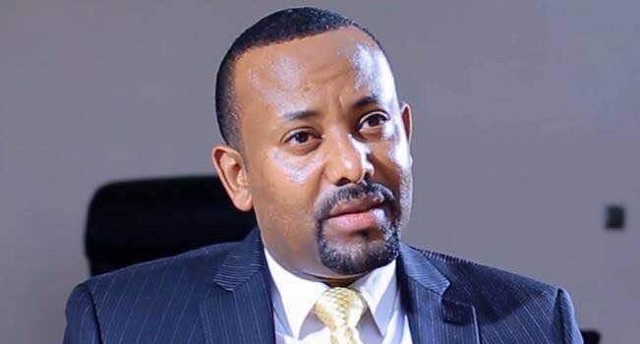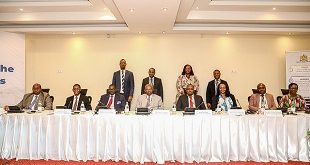
Oslo, Norway | AFP | Hailed as a visionary and reformer, Ethiopian Prime Minister Abiy Ahmed won the Nobel Peace Prize on Friday for his efforts to resolve the long-running conflict with neighbouring foe Eritrea.
Abiy was honoured “for his efforts to achieve peace and international cooperation, and in particular for his decisive initiative to resolve the border conflict with neighbouring Eritrea,” the Nobel Committee said.
The award is seen as a welcome boost for Africa’s youngest leader as he faces worrying inter-community violence ahead of a parliamentary election in May 2020.
“I was so humbled and thrilled when I just heard the news,” Abiy told the Nobel Committee in a phone call posted online on the Nobel Prize website.
“It is a prize given to Africa, given to Ethiopia.”
Abiy also said he hoped it would inspire other African leaders to “think it possible to work on peace-building processes”.
Since taking office in April 2018, the 43-year-old has aggressively pursued policies that have the potential to upend society in the Horn of Africa nation and reshape dynamics beyond its borders, after years of civil unrest.
On July 9, 2018, following a historic meeting in Eritrea’s capital Asmara, Abiy and Eritrean President Isaias Afwerki formally ended a 20-year-old stalemate between the countries in the wake of the 1998-2000 border conflict.
Abiy swiftly released dissidents from jail, apologised for state brutality, and welcomed home exiled armed groups.
– ‘Winds of hope’ –
His actions have sparked optimism in a region of Africa marred by violence.
“I have said often that winds of hope are blowing ever stronger across Africa. Prime Minister Abiy Ahmed is one of the main reasons why,” UN Secretary General Antonio Guterres said.
The peace agreement with Eritrea has “opened up new opportunities for the region to enjoy security and stability,” and Abiy’s “leadership has set a wonderful example for others in and beyond Africa looking to overcome resistance from the past and put people first.”
The Nobel jury stressed that the Peace Prize was “also meant to recognise all the stakeholders working for peace and reconciliation in Ethiopia and in the East and Northeast African regions.”
It singled out the Eritrean leader for praise, noting that “peace does not arise from the actions of one party alone.”
“When Prime Minister Abiy Ahmed reached out his hand, President Afwerki grabbed it, and helped to formalise the peace process between the two countries.”
However analysts believe there is still some way to go before a lasting peace, and the enthusiasm has been mixed with frustration.
The border between the two countries has once again been closed, the countries still lack trade agreements and Ethiopia — a land-locked country — still has no access to Eritrean ports.
And last June, Abiy faced the greatest threat yet to his hold on power when gunmen assassinated high-ranking officials including a prominent regional president and the army chief.
Amnesty International said the prize should spur Abiy to enhance reforms on human rights.
“This award should push and motivate him to tackle the outstanding human rights challenges that threaten to reverse the gains made so far,” the group said, pointing to “ongoing ethnic tensions that threaten instability and further human rights abuses”.
Ethnic violence has been on the rise in recent years, causing Ethiopia to record more internally displaced people last year than any other country.
 The Independent Uganda: You get the Truth we Pay the Price
The Independent Uganda: You get the Truth we Pay the Price



